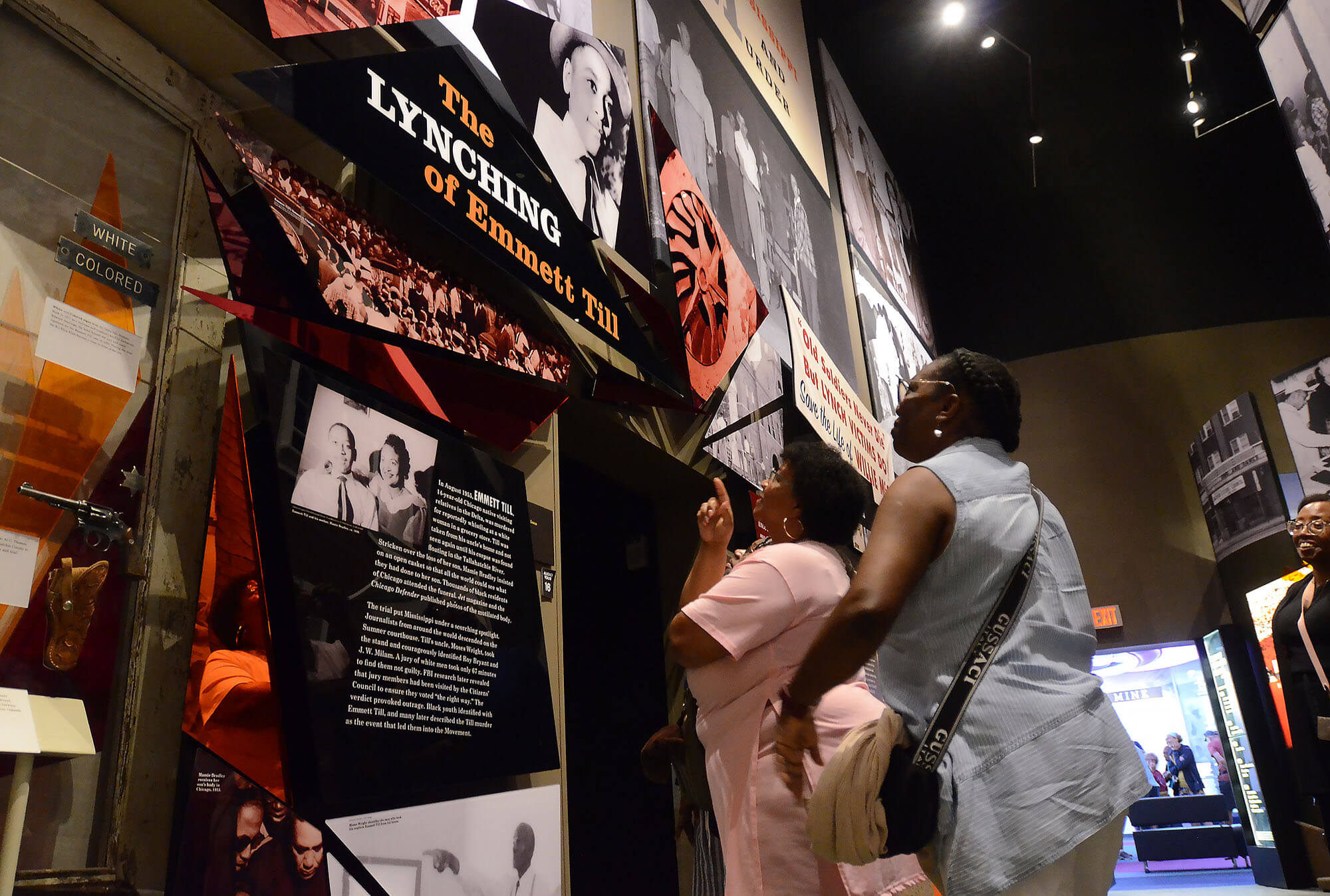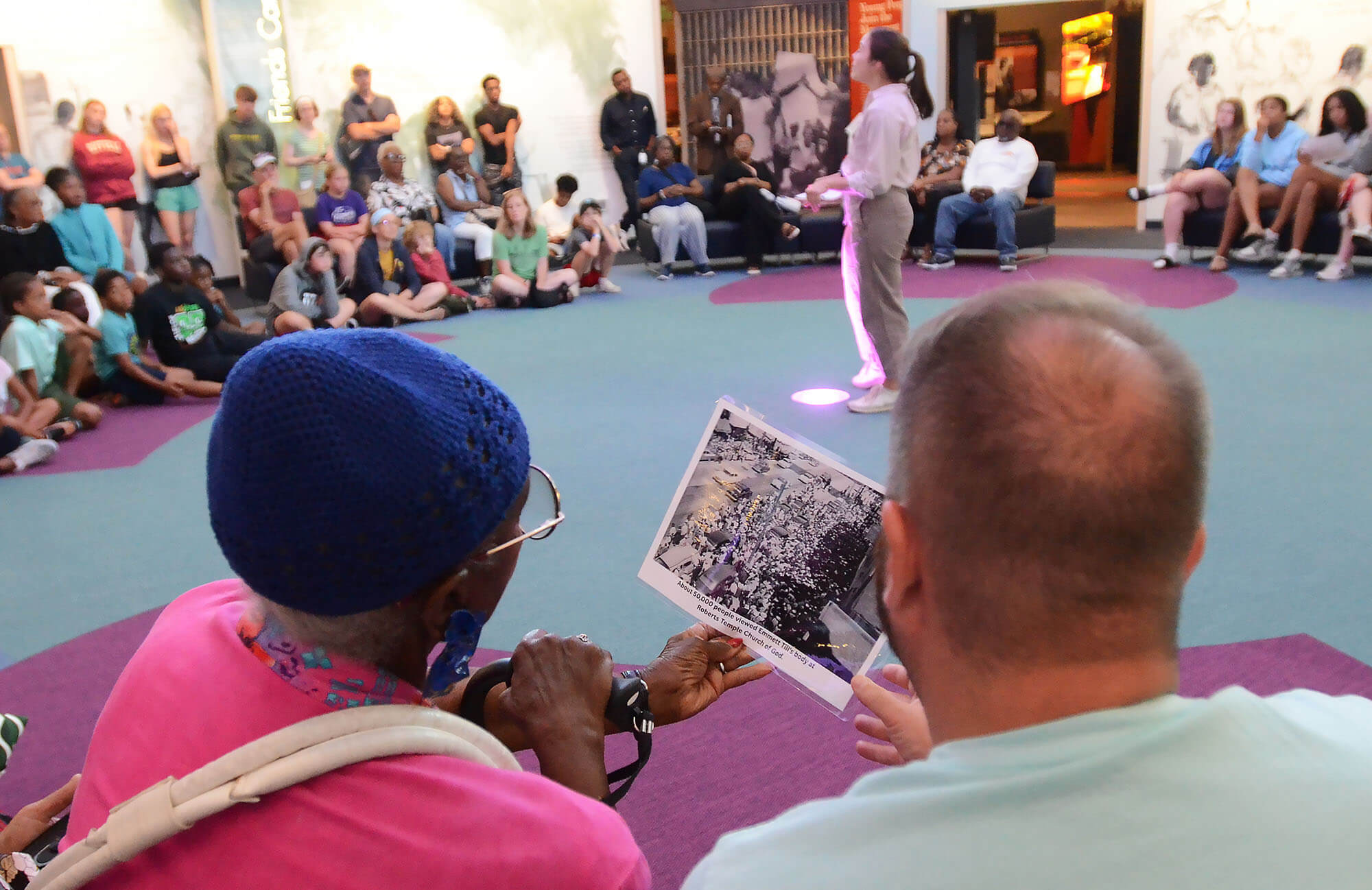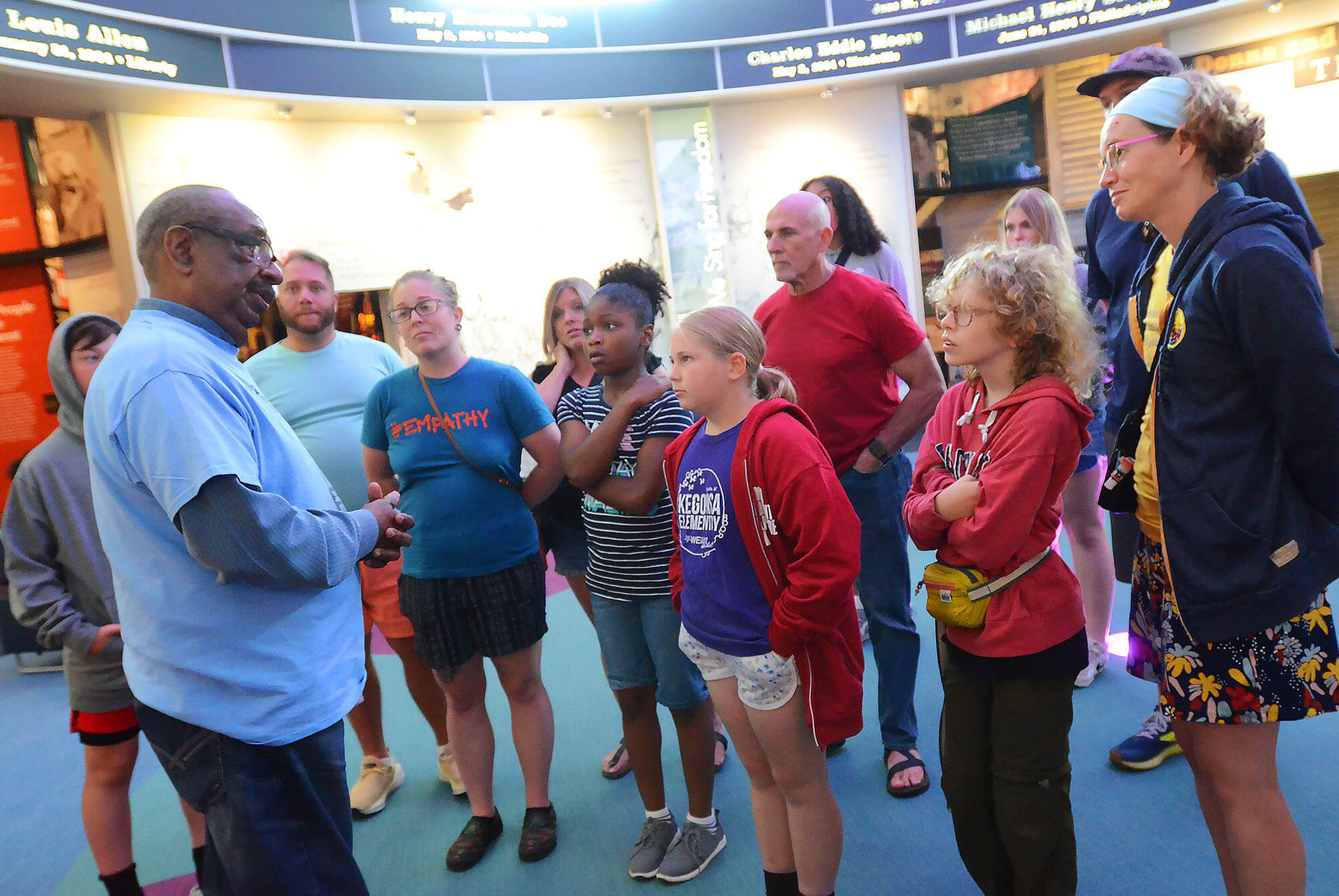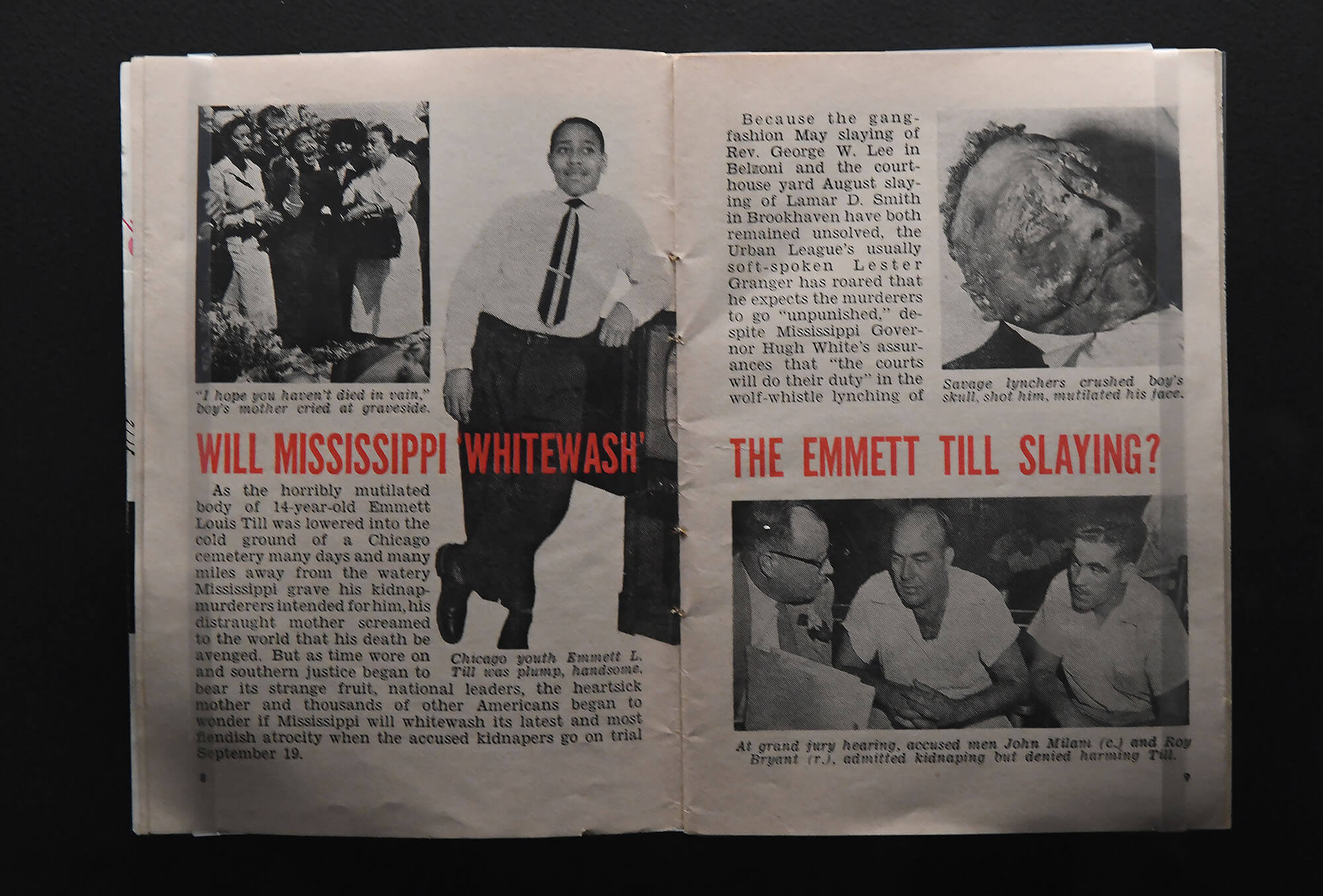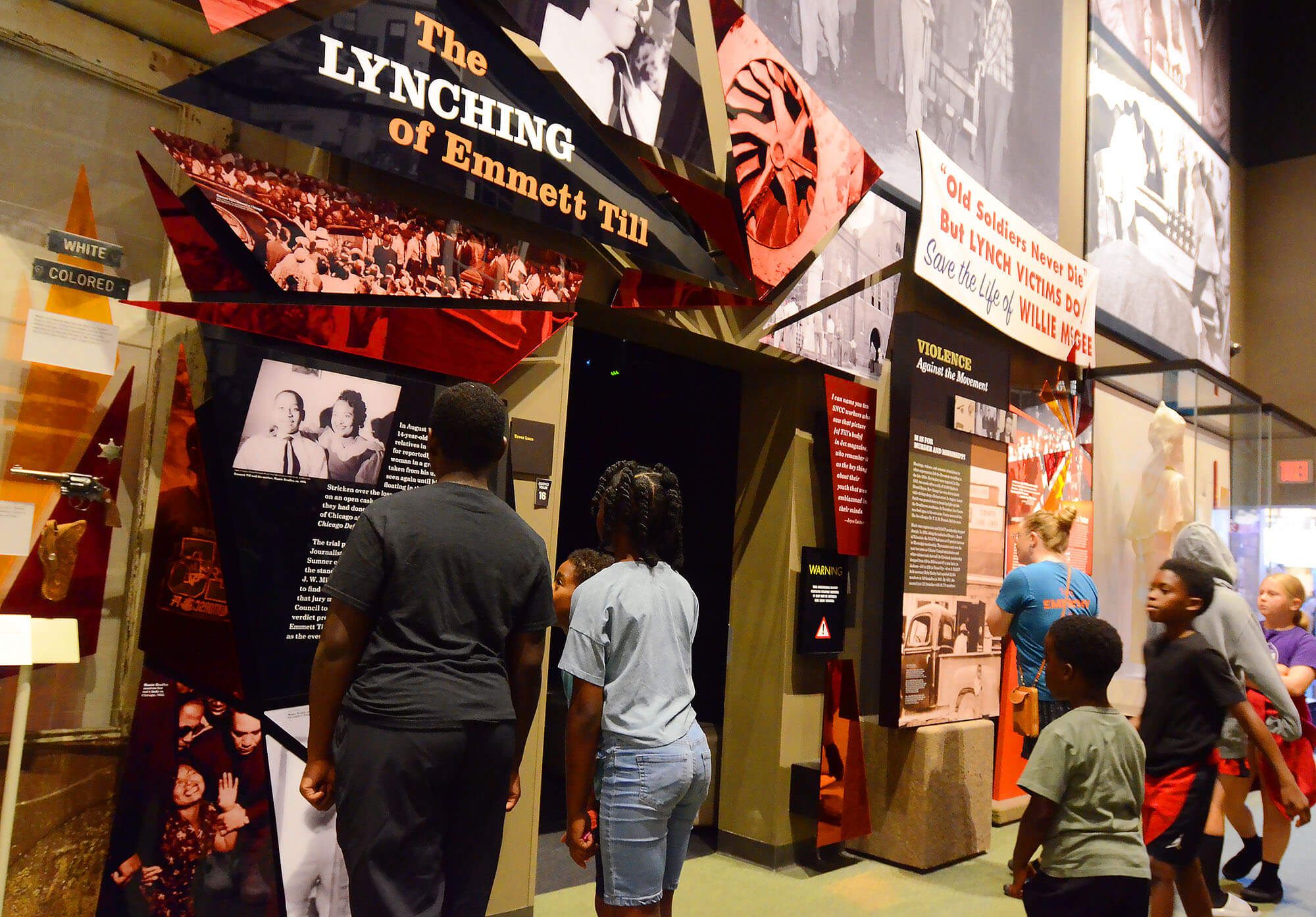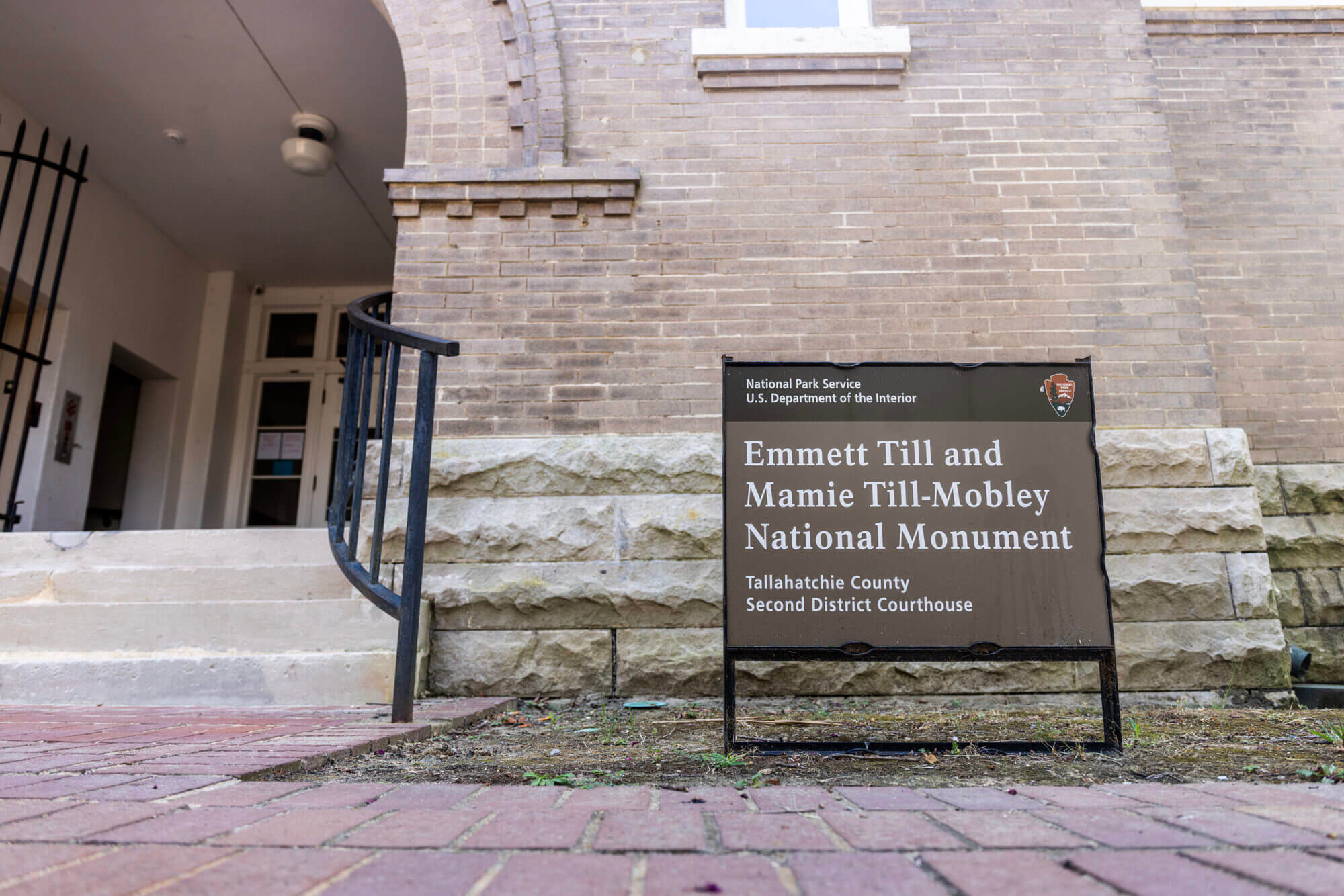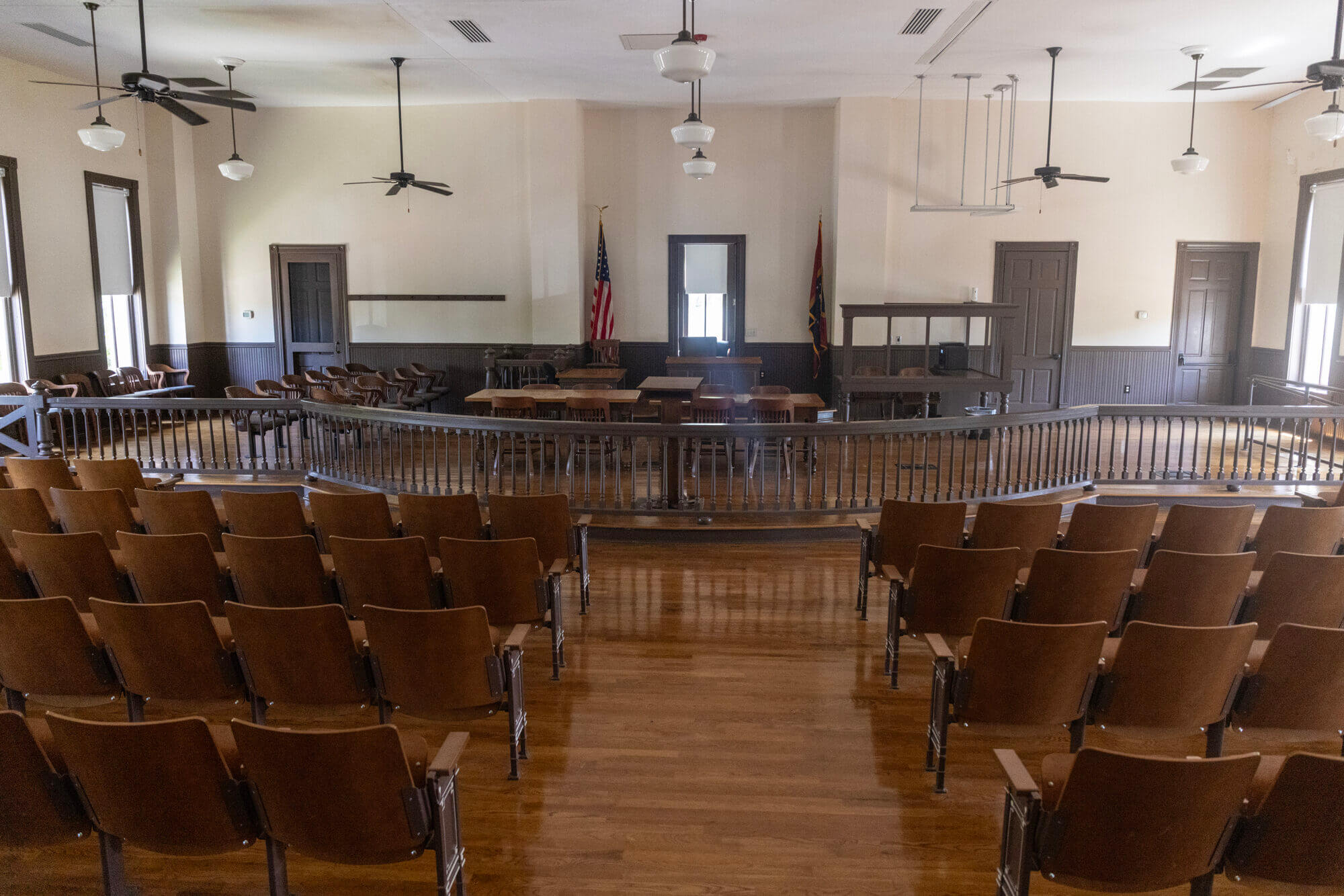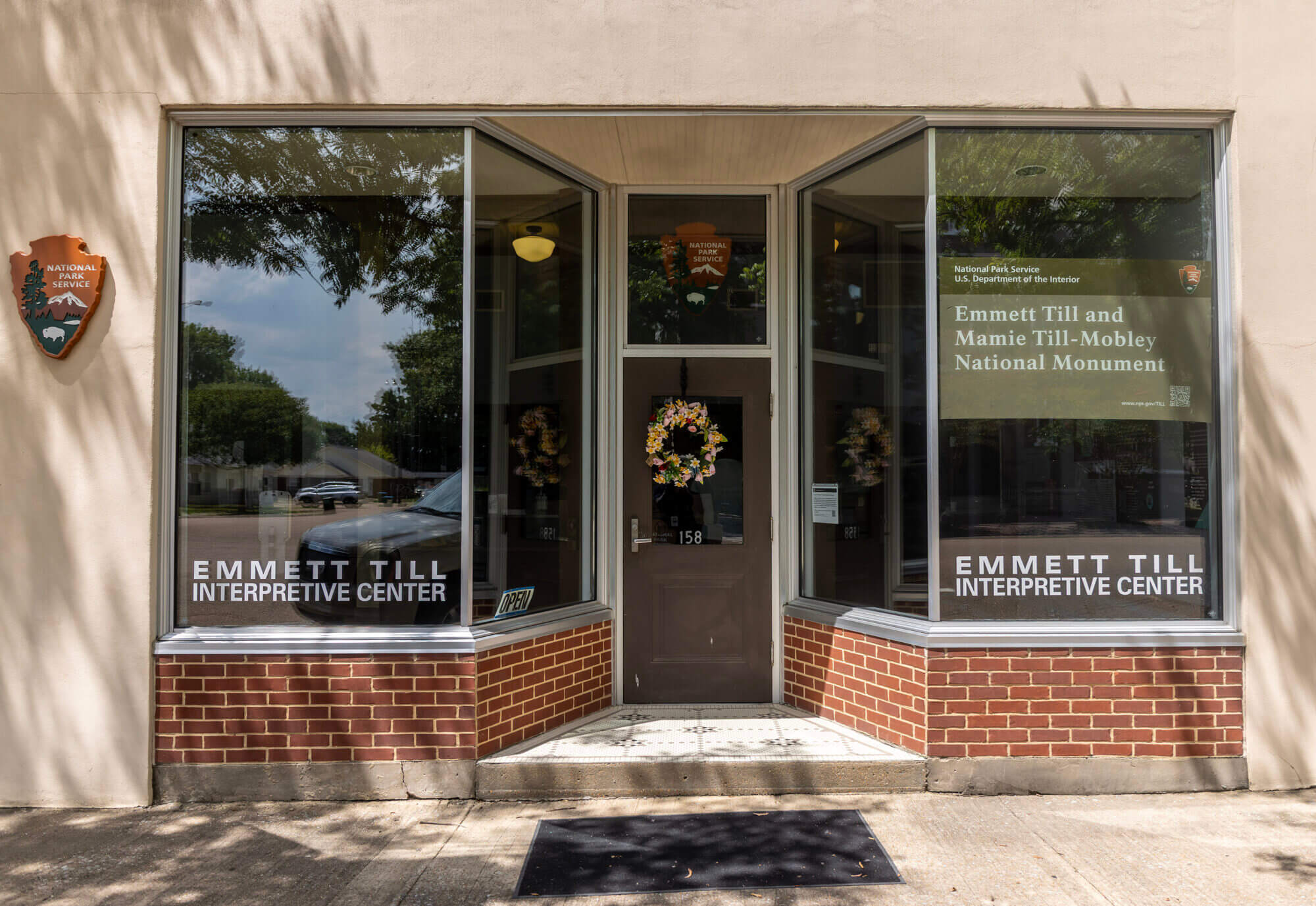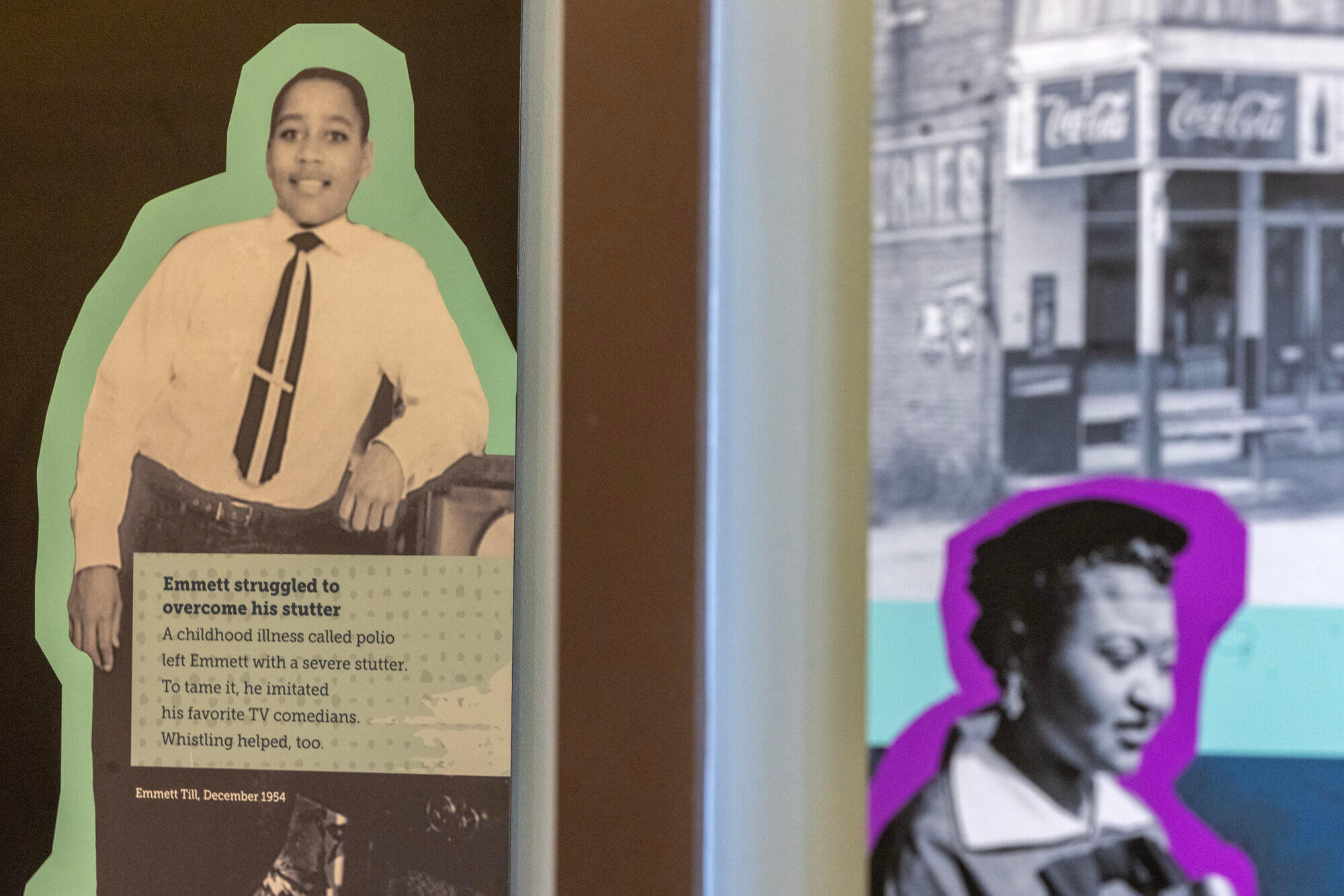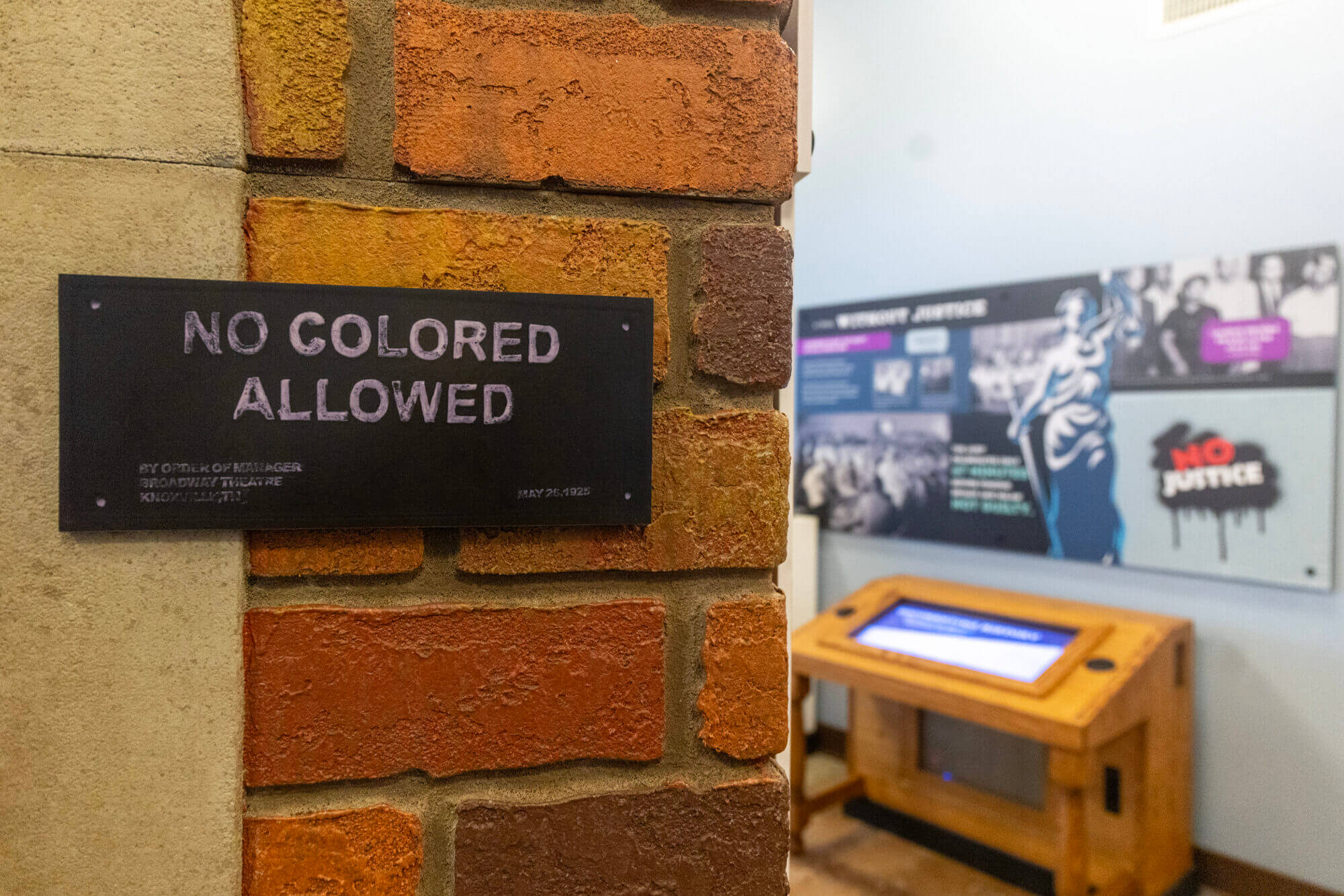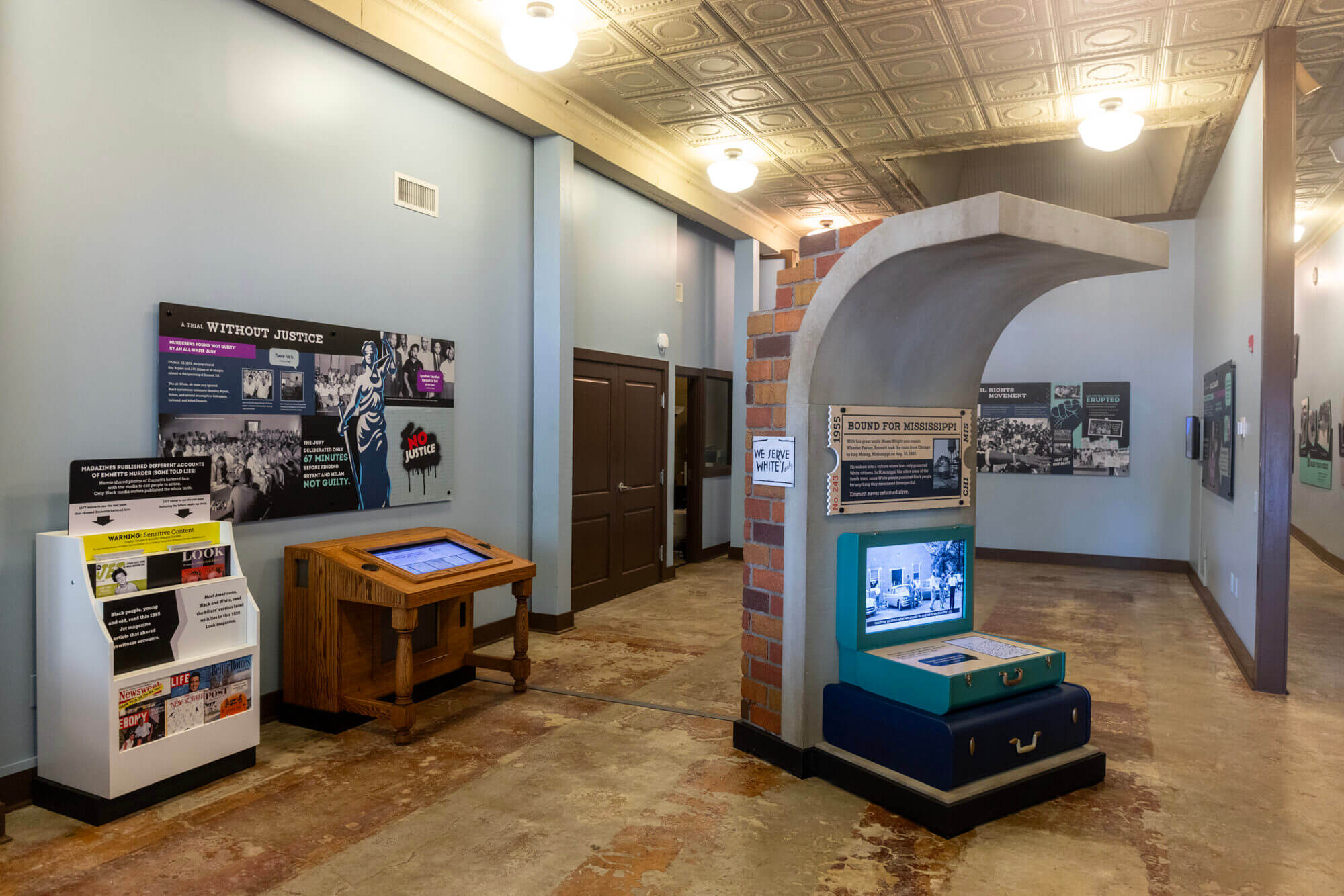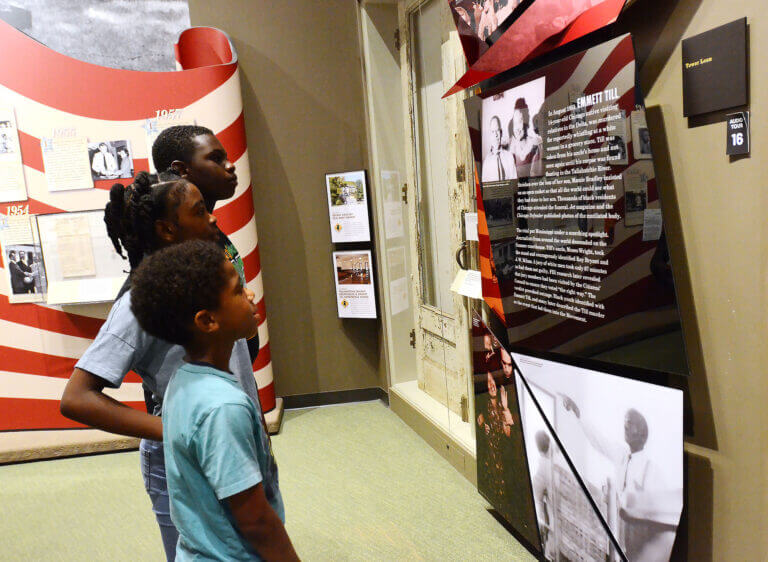
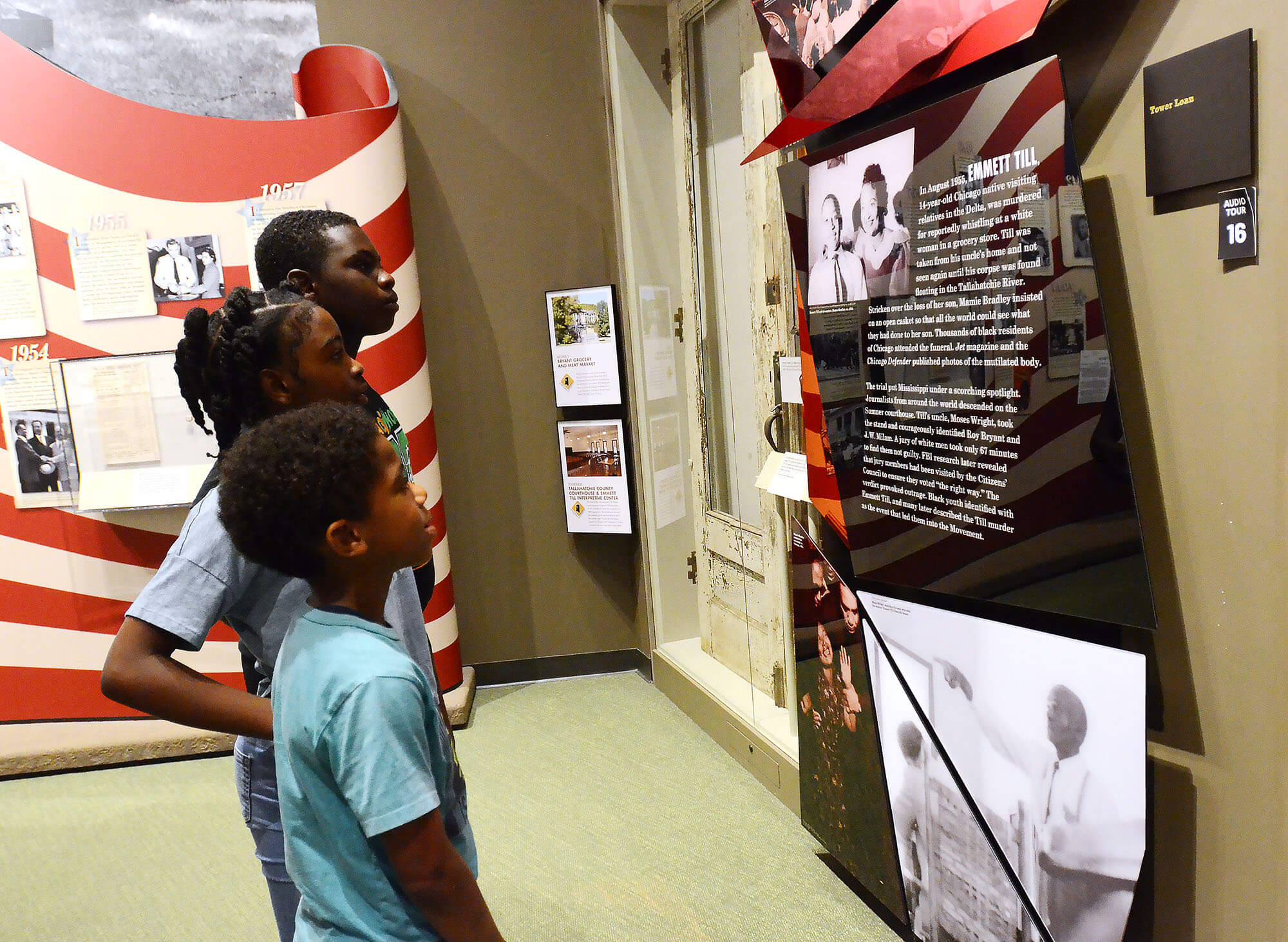
This year marks what would have been Emmett Till’s 84th birthday, and 70 years since the Black teenager was kidnapped and lynched in Mississippi. The Two Mississippi Museums and the Emmett Till Interpretive Center are holding events dedicated to Till and the impact of his death, inspired by the anniversaries.
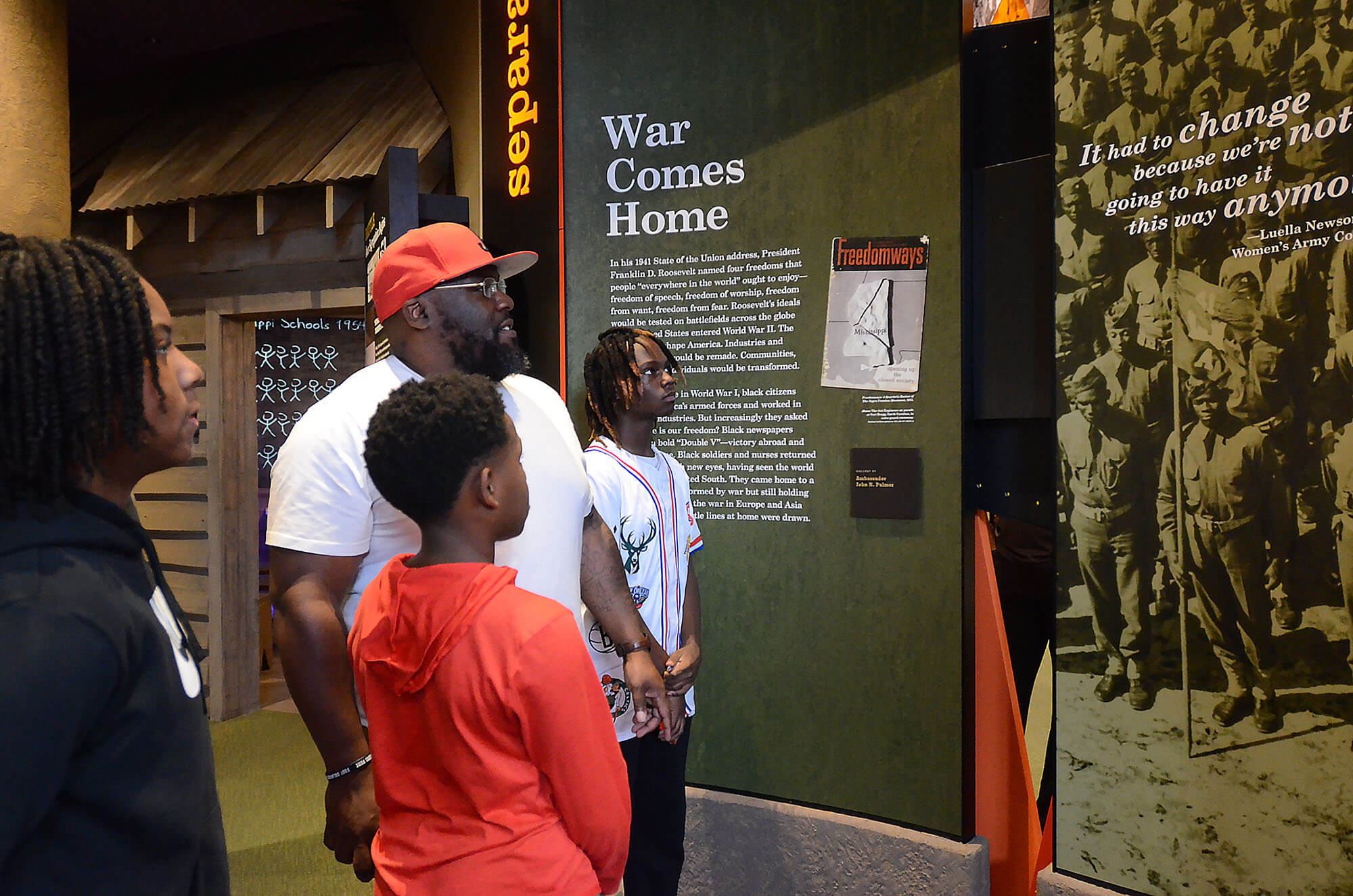
The side-by-side museums in Jackson – the Mississippi Civil Rights Museum and the Museum of Mississippi History – continued a tradition of conducting tours on Till’s birthday, July 25. Visitors sat in the center of the civil rights museum, where a guide recounted Till’s story and its impact on the Civil Rights Movement. People could also enter a small gallery to watch a documentary about his life.
DeSean Dyson, a Jackson native, said he considers Till’s life essential to his own work. His job takes him around the U.S. to promote peace and justice initiatives.
“It’s very important to me, as I have a 10-year-old, a 12-year-old and a 16-year-old, that they stay rooted and connected to this history,” said Dyson, a former educator who took his sons to tour the museums.
He said teachings about Till should emphasize his humanity.
“Like, it’s really important how we frame Emmett’s death as being inspiring to a generation, but Emmett’s life mattered a lot,” Dyson said.
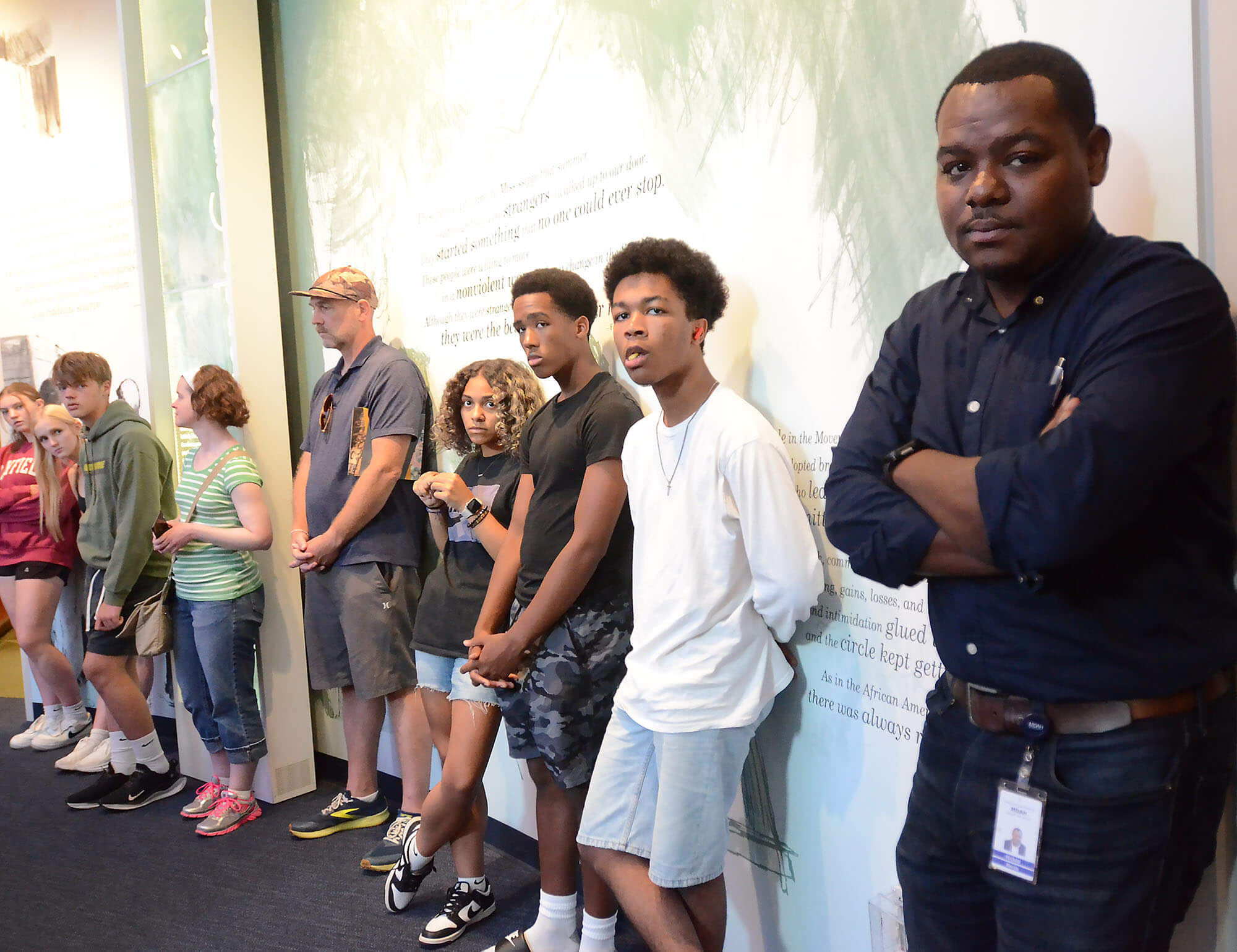
Michael Morris, director of the Two Mississippi Museums, said he wants people to understand the broad context of Till’s life and death.
“I hope visitors learn about not just the fact that he was murdered, which is important, but also the fact that his life really did stimulate, encourage, inspire a lot of youth his age to become a part of the modern Civil Rights Movement,” Morris said.
Longtime civil rights activist Hezekiah Watkins of Jackson volunteers at the civil rights museum in various roles, often speaking about his life story. In 1961, he was just 13 when he was arrested at Jackson’s Greyhound bus station. Authorities thought he was part of the Freedom Riders, a racially integrated group of young people who rode interstate buses through the South to challenge segregation. Watkins and the Freedom Riders were sent to the Mississippi State Penitentiary and housed on death row.
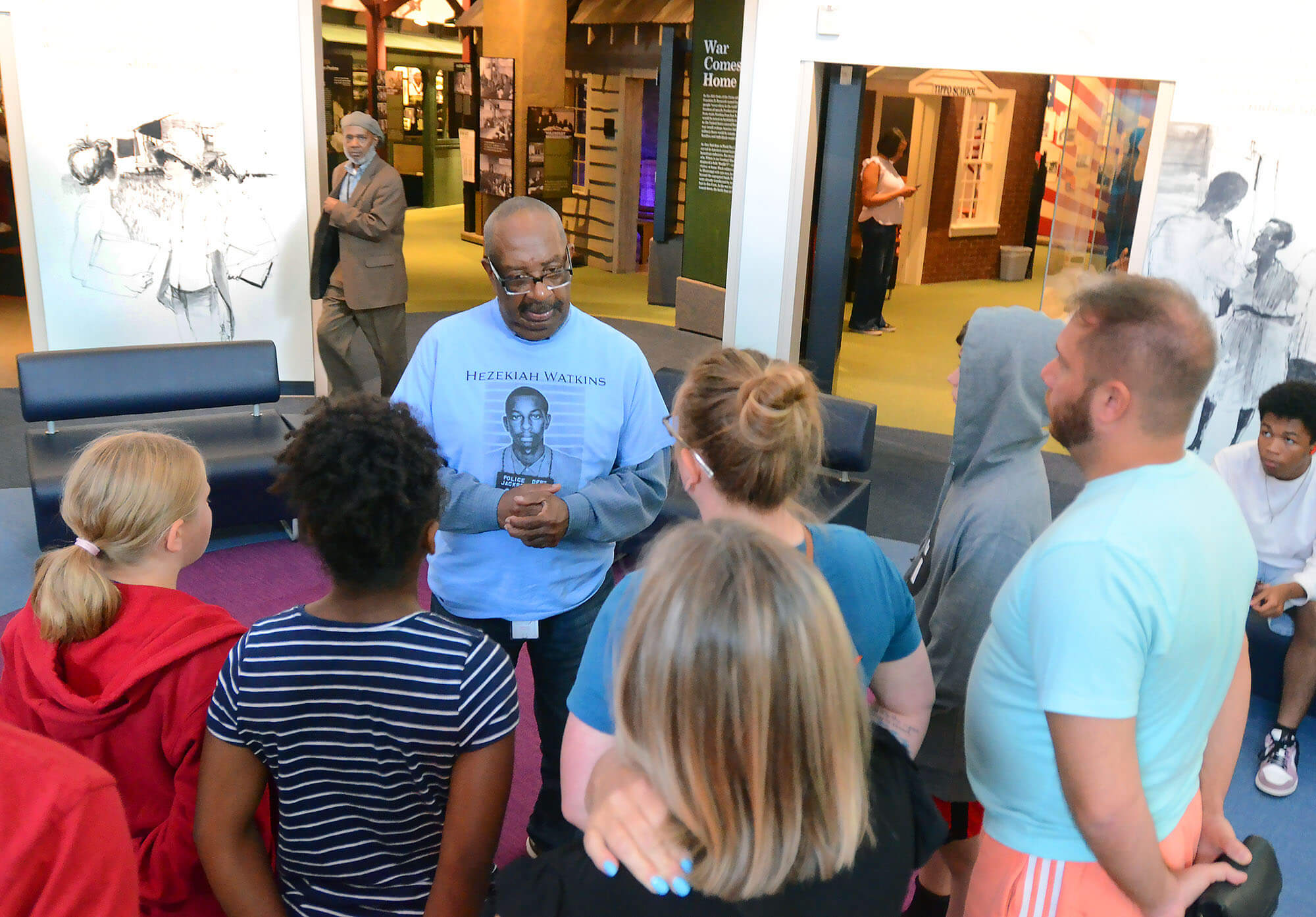
Watkins recounted that when he told his mother he was joining the Civil Rights Movement, she used Till’s death as a warning: “She said, ‘You remember me telling you about Emmett Till?’ She said, ‘The same thing that happened to Emmett will happen to you.’
“I guess I really didn’t care,” Watkins said, “because I didn’t know that we was living in bondage … I didn’t know we was living as slaves, per se.”
In August 1955, 14-year-old Till traveled from Chicago to the Mississippi Delta to visit his cousins. Till and other young Black people went to buy snacks one day at Bryant’s Grocery & Meat Market in the tiny community of Money. Till’s cousin Simeon Wright later said he heard Till whistle at the white storekeeper, Carolyn Bryant, as they left.
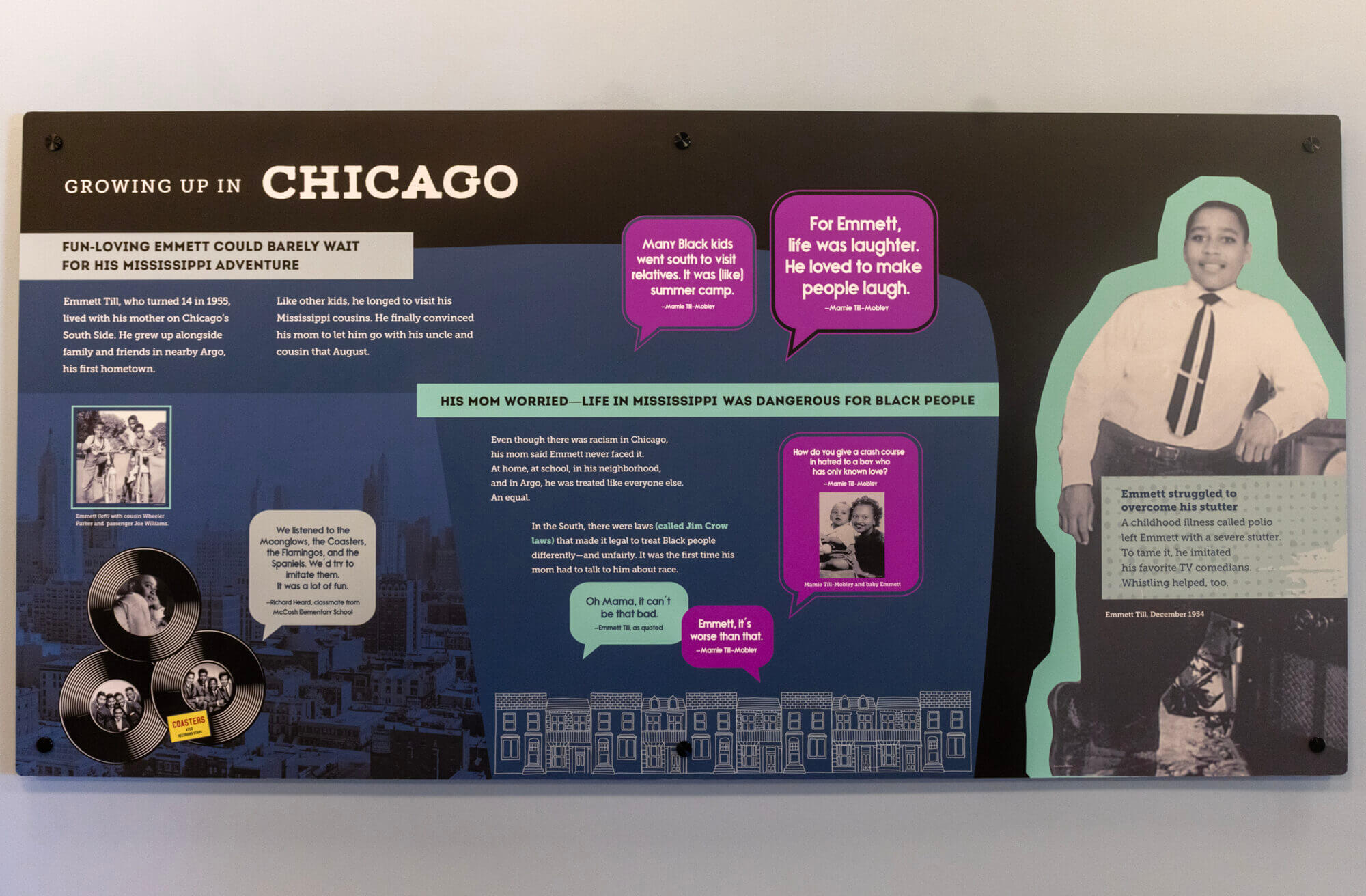
Days later, a group that included Carolyn’s husband Roy Bryant and his half-brother J.W. Milam kidnapped Till from the home of Moses Wright, Till’s great-uncle. They beat Till, shot him and dumped him in the Tallahatchie River, using barbed wire to attach a 75-pound cotton gin fan to him. His body was discovered three days later, decomposed beyond recognition except for his father’s ring on one of his fingers.
Mississippi authorities wanted a quick burial, but Till’s mother Mamie Till-Mobley requested his body be returned to Chicago. After seeing the horrific condition of her son’s corpse, she insisted on an open-casket funeral so the world could see what had happened.
Jet magazine published a photo of Till’s mutilated body at his funeral, launching the killing into an international news story. Weeks later, an all-white jury in Mississippi acquitted Milam and Bryant of murdering Till. Outrage over the injustice of the case helped launch the Civil Rights Movement, inspiring many Black people to openly oppose Jim Crow.
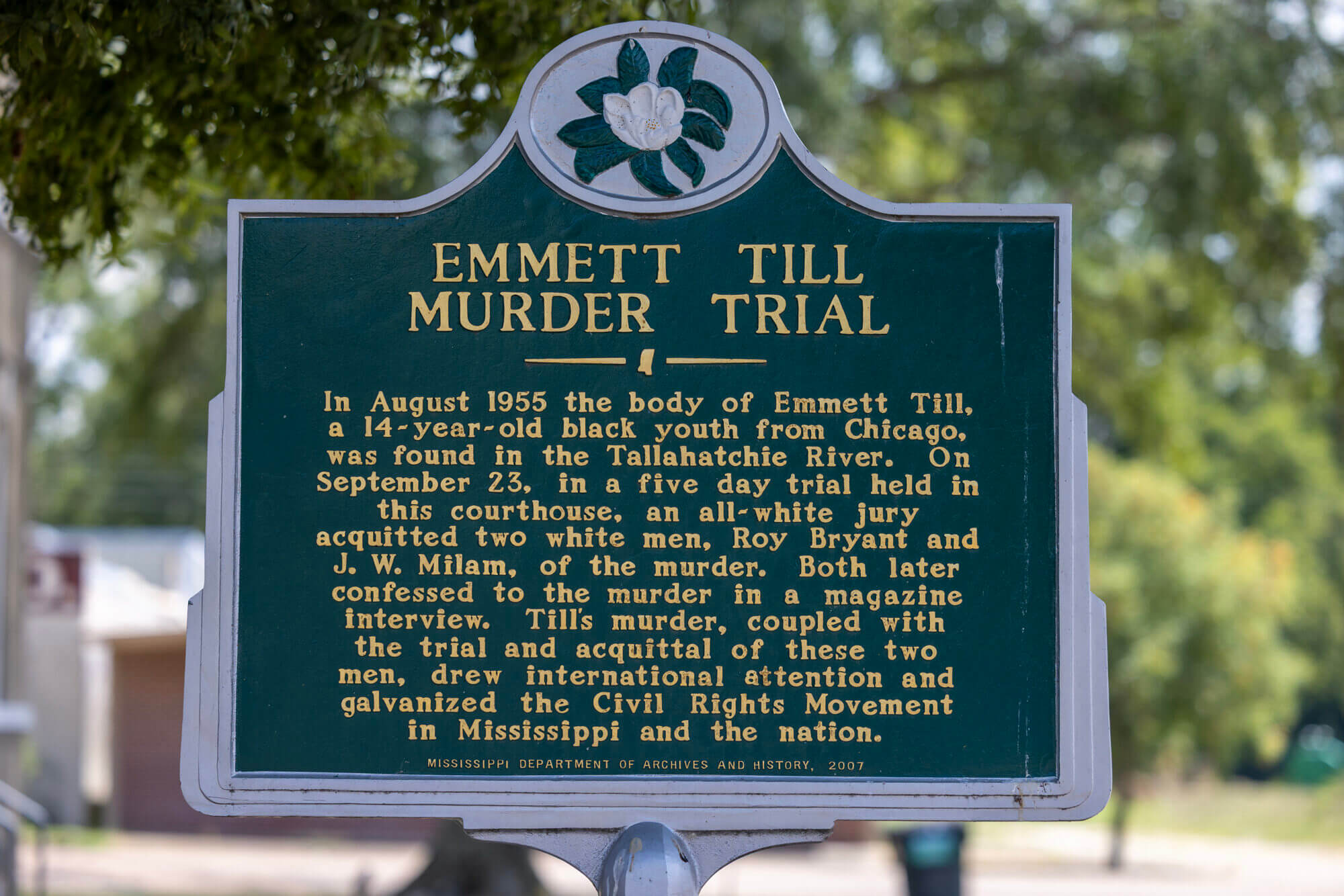
Today, the courthouse where Till’s killers were acquitted is restored and is a National Park Service site. The restoration was done by the Emmett Till Memorial Commission, formed in 2006 by Jerome G. Little, the Tallahatchie County Board of Supervisors’ first Black president.
The commission was dedicated to remembering Till and healing racial division. It went on to become a nonprofit organization and establish the Emmett Till Interpretive Center in Sumner.
The center is hosting a Till commemoration Aug. 28-30 at Mississippi Valley State University’s Walter Roberts Auditorium.
Benjamin Saulsberry is the museum’s public engagement and education director. He said the impact of Till’s death is still felt today by people who remember the terrible events of that hot Mississippi summer.
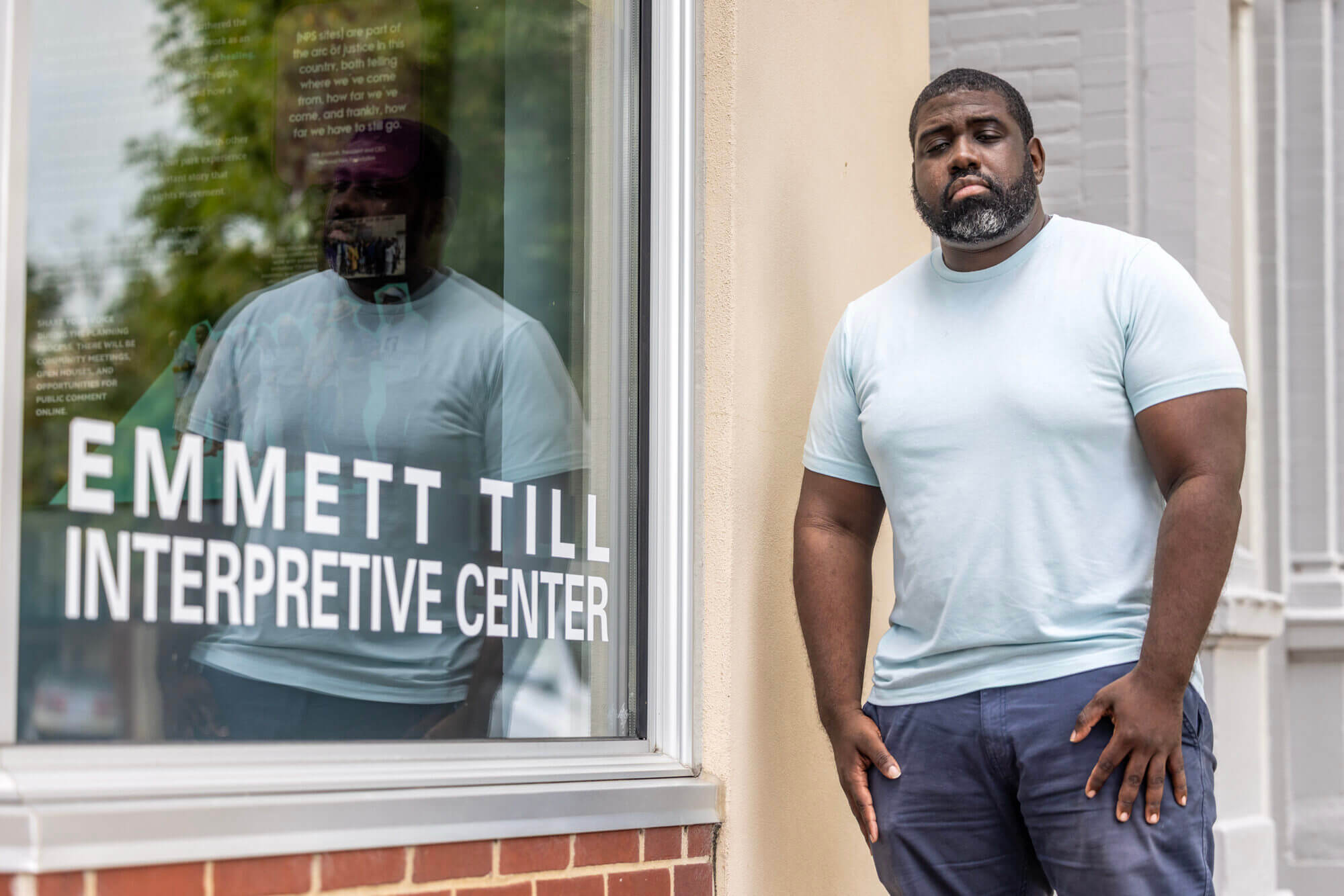
“We’re talking about people who are still alive with us, people who were lawmakers or about to become lawmakers themselves … and in turn, their ideologies and their spaces have helped – or in some ways maybe not helped — shape the world that we live in today,” he said.
The three-day commemoration will focus on Till, his mother and the impact of Till’s lynching in the Delta. The programming includes a theatrical performance, an award-winning biographical exhibit and panels with people discussing their accounts of watching Till’s story. Registration for the commemoration is on the center’s website.
Saulsberry hopes visitors come away from the commemoration knowing more about Till and the Delta, that they feel inspired to continue learning and that they know they can create change in their own lives.
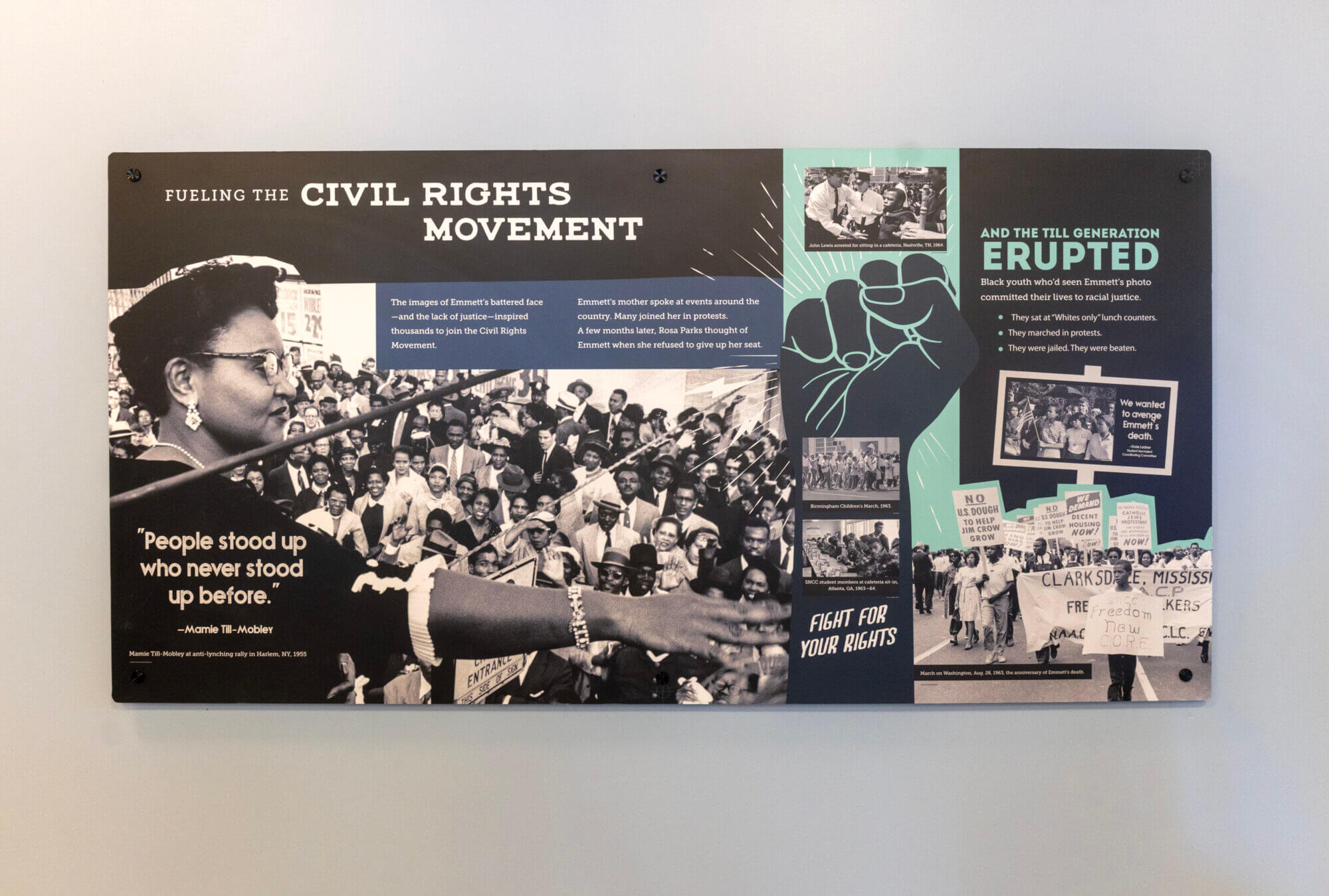
He acknowledged Till’s death was a tragedy, but said people should remember the action it inspired.
“And I want to be clear that it marks the 70th year after his murder, but also marks the 70th year of Mrs. Mamie Till making the decision she made that would help basically, bring us to another part of the Civil Rights Movement,” Saulsberry said. “It’s the 70th year anniversary point of recognition where Mr. Moses Wright stands up in that courtroom and points directly at Milam and Bryant, knowing he was putting his own life at risk.”
- Sen. Wicker writes to Kristi Noem opposing feared ‘ICE warehouse’ in Byhalia - February 4, 2026
- House votes to legalize online sports betting and divert $600M to pension system - February 4, 2026
- Lawmakers push bills to heighten transparency for rural health federal funding - February 4, 2026
